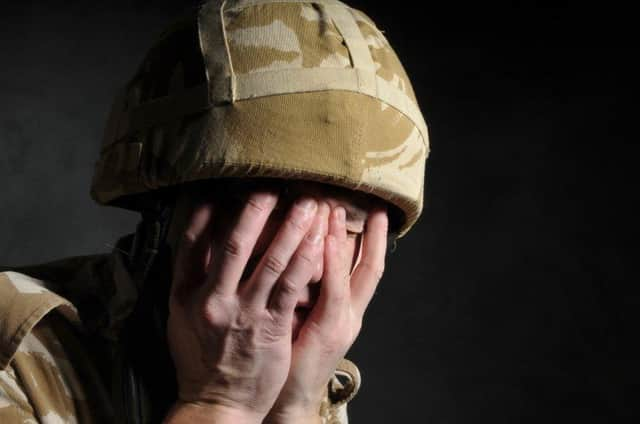Third of Army veterans living in NI suffer from PTSD: Queen’s University study


A survey carried out by academics at Queen’s University Belfast also found that a similar number reported problematic alcohol usage.
More than 1,300 veterans living in Northern Ireland responded to the research about their mental health.
Advertisement
Hide AdAdvertisement
Hide AdOn average, participants were aged 56 years – the eldest was 99 – and 90% were male.
The study found that while the majority of respondents reported positive experiences of being in the Armed Forces, some reported experiencing mental health challenges.
Almost 40% of respondents met criteria for depression, while over 32% met the criteria for anxiety. Around 4% said they had concerns about their gambling and 2.3% said they considered themselves to be moderate to severe drug users.
The study is also the first to make comparisons between those who were home-service veterans – those who had served in the Ulster Defence Regiment or the Royal Irish Regiment during their career – and general service veterans.
Advertisement
Hide AdAdvertisement
Hide AdA significantly higher proportion of home-service veterans were found to be likely to be suffering from PTSD, anxiety and depression disorders.
Results revealed that the level of gambling concerns, alcohol and drug use were similar in each group.
Of the respondents, 42% reported they had previously taken prescription medication for a mental health or emotional problem and 44% said they had received psychotherapy or counselling from a qualified professional.
Prescription usage and engagement with psychotherapy and counselling were more common for home-service veterans.
Advertisement
Hide AdAdvertisement
Hide AdThe study also found a variety of barriers for veterans seeking help for their mental health including access issues, stigma and negative perceptions of mental health services and concerns about safety.
A significantly greater number of barriers to seeking help were reported by home-service veterans compared with general service veterans.
The report called for greater awareness of the mental health needs of veterans living in Northern Ireland by health care practitioners and wider promotion of mental health and well-being awareness campaigns.
Cherie Armour, Professor of Psychological Trauma and Mental Health, who led the study, described the findings as “startling and concerning”.
Advertisement
Hide AdAdvertisement
Hide Ad“As we don’t know how many veterans in total are living in Northern Ireland, we can’t say that the data is representative of the whole population of veterans,” she said.
“However, our research had some very startling and concerning findings from those veterans who responded and it’s clear that significant numbers of them have suffered mental health challenges.
“Most worrying are the reported rates of mental ill health and problematic alcohol usage, all of which can generate many social and professional difficulties.
“There was a large discrepancy between those meeting the criteria based on their reports of individual symptoms and experiences compared with the diagnoses participants reported receiving from a GP or healthcare provider.
Advertisement
Hide AdAdvertisement
Hide Ad“This demonstrates that people often don’t seek help when they experience difficulties, or they aren’t receiving a diagnosis when they do.
“Our report details what these help-seeking barriers might be for veterans in NI.”
The research was carried out as part of a five-year programme of research, the Northern Ireland Veterans Health and Wellbeing Study.
It was funded by Forces In Mind Trust, which aims to enable ex-service personnel and their families to make a successful and sustainable transition to civilian life.
Advertisement
Hide AdAdvertisement
Hide AdProf Armour hopes to secure additional funding to continue analysing the data.
Ray Lock, chief executive of the trust, said the study made “significant progress” in understanding the unique experiences service personnel had in the armed forces, and how this could impact on their ability to transition successfully.
“This important report highlights the mental health needs of this group, but there is more work that needs to be done to complete this picture,” he said.
“Until the health and social care needs of veterans in Northern Ireland are fully met, we will continue to generate evidence to bring about the change which is needed.”